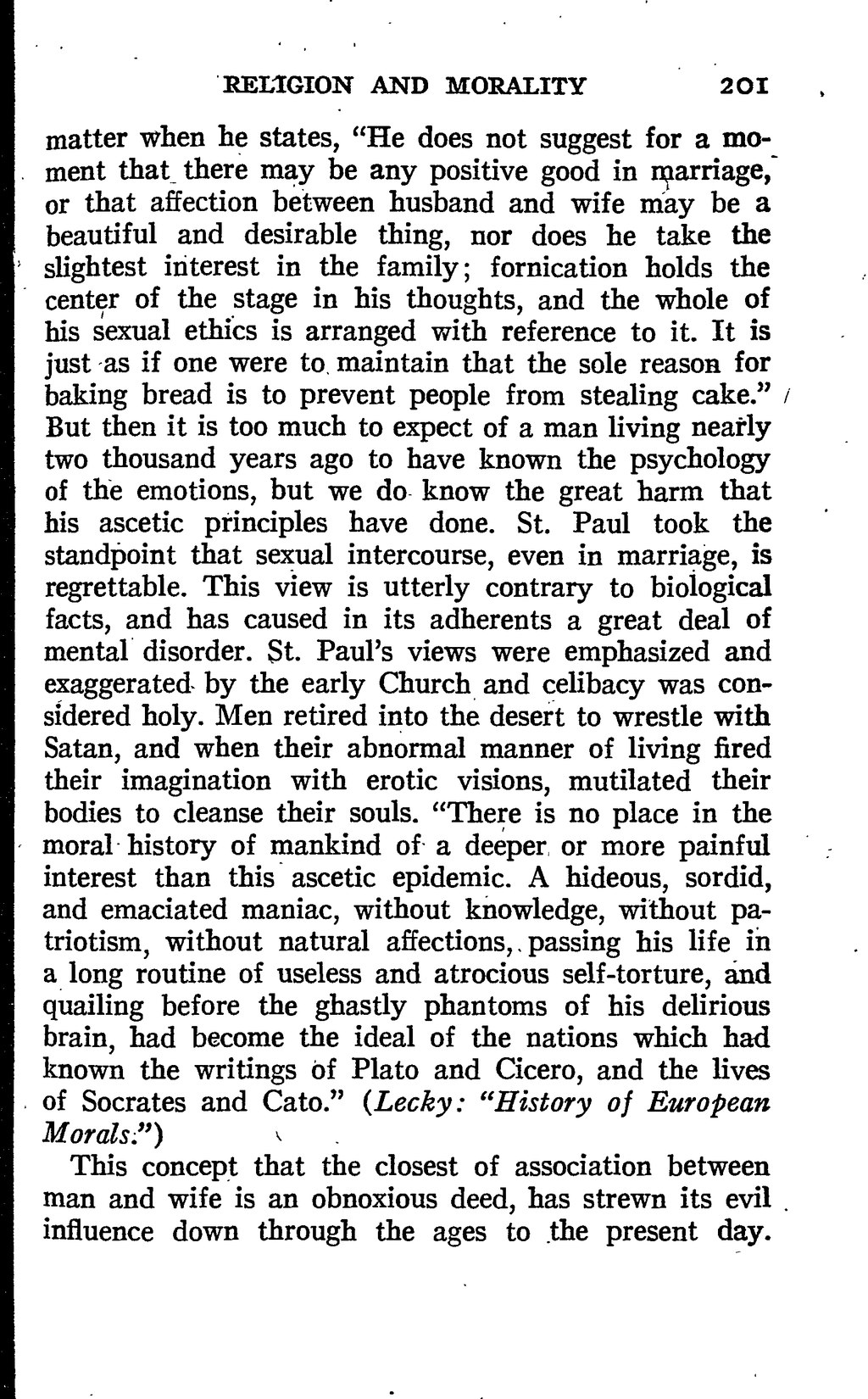matter when he states, "He does not suggest for a moment that, there may be any positive good in marriage, or that affection between husband and wife may be a beautiful and desirable thing, nor does he take the slightest interest in the family; fornication holds the center of the stage in his thoughts, and the whole of his sexual ethics is arranged with reference to it. It is just as if one were to maintain that the sole reason for baking bread is to prevent people from stealing cake." But then it is too much to expect of a man living nearly two thousand years ago to have known the psychology of the emotions, but we do know the great harm that his ascetic principles have done. St. Paul took the standpoint that sexual intercourse, even in marriage, is regrettable. This view is utterly contrary to biological facts, and has caused in its adherents a great deal of mental disorder. St. Paul's views were emphasized and exaggerated by the early Church and celibacy was considered holy. Men retired into the desert to wrestle with Satan, and when their abnormal manner of living fired their imagination with erotic visions, mutilated their bodies to cleanse their souls. "There is no place in the moral history of mankind of a deeper or more painful interest than this ascetic epidemic. A hideous, sordid, and emaciated maniac, without knowledge, without patriotism, without natural affections, . passing his life in a long routine of useless and atrocious self-torture, and quailing before the ghastly phantoms of his delirious brain, had become the ideal of the nations which had known the writings of Plato and Cicero, and the lives of Socrates and Cato." (Lecky: "History of European Morals.")
This concept that the closest of association between man and wife is an obnoxious deed, has strewn its evil influence down through the ages to the present day.
